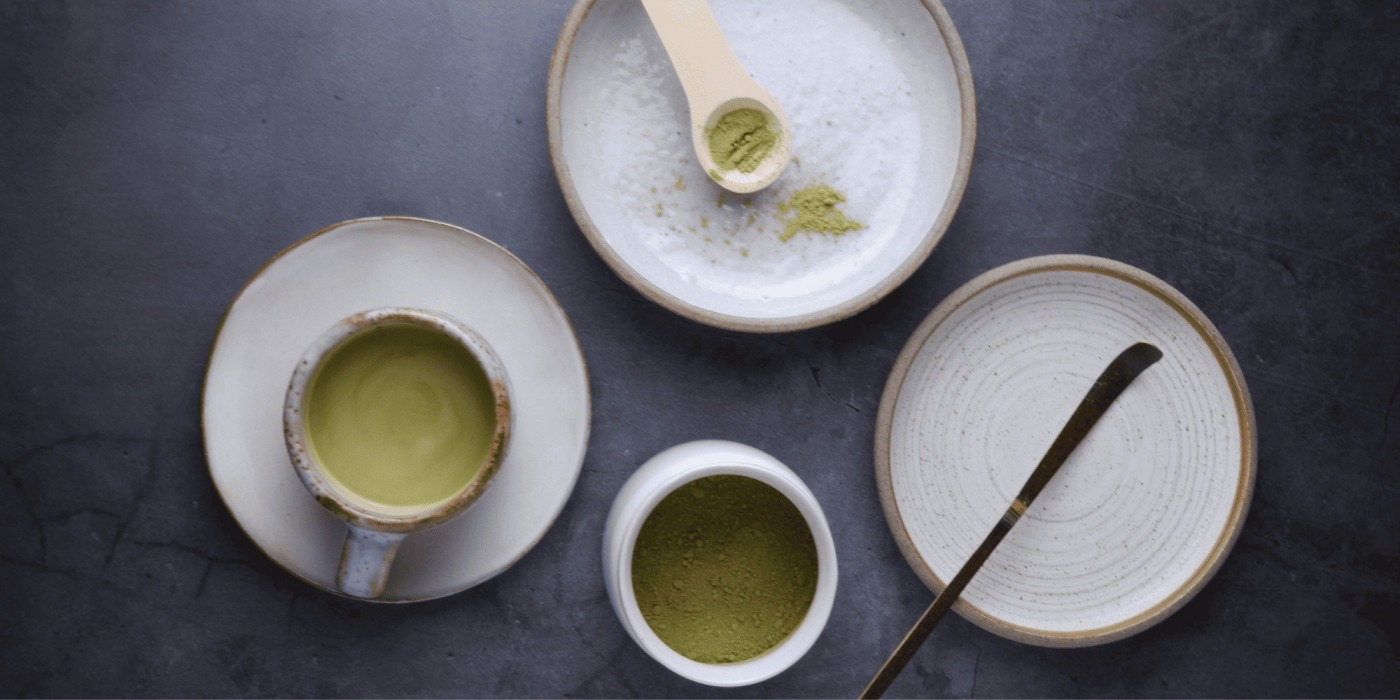Is matcha the new coffee?
If you asked someone five years ago what their go-to drink was at a café, the common answer would probably be tea, coffee, or maybe even a hot chocolate. However, if you asked the question now, matcha could be one of the answers. Particularly in the past year, matcha has risen in popularity, with its endless unique varieties. This leads us to question, is matcha the new coffee?
Matcha is a type of powdered green tea known for its notable, vibrant green colour. It has the same benefits as normal green tea and is a good source of antioxidants. You can have matcha as a tea or a latte, hot or cold – the varieties are endless. One of the most common myths about matcha is that it tastes like grass – however, this is not the case. It has a unique umami taste, refreshing with slightly earthy undertones.
The energy that you gain from a cup of matcha has proven to be longer lasting than from a cup of coffee
Matcha has gone viral on social media which can be attributed to its rise in popularity. Although matcha has been consumed in Asian countries such as Japan and China since the 7th century, it has only recently become commonly known worldwide. Matcha is easy to make at home but has also started to be sold in a variety of cafes. As well as being sold in well-known cafes such as Starbucks and Pret a Manger, smaller businesses, such as Blank Street Coffee and Jenki, have become popular due to their uniquely flavoured matcha drinks.
But can matcha ever replace coffee? Many people consume coffee to give them that extra boost to get them through the day and matcha can do the same. Matcha, on average, contains 70mg of caffeine, only slightly less than the 100-140mg in a cup of coffee. Whilst this is less caffeine, the energy that you gain from a cup of matcha has proven to be longer lasting than from a cup of coffee, making it a more effective alternative to coffee.
After drinking a cup of coffee, you will likely feel a sudden burst of energy. However, as coffee speeds up bodily functions, it can often trigger jitters and anxious feelings. Caffeine not only increases alertness but triggers the release of adrenaline. Too much adrenaline can link to feelings of dread and anxiety, which is why many who consume coffee frequently, suffer from caffeine-inducing anxiety disorder. Considering matcha contains less caffeine, it does not create these shaky feelings. It provides a longer, less intense, burst of energy, helping to give the same boost but without the jittery symptoms.
Matcha combinations are often more adventurous and unconventional than coffee flavours
As well as being a healthier source of energy, matcha also contains a range of antioxidants. Antioxidants help maintain your general health, by fighting diseases, regulating your blood pressure, and promoting cardiovascular health. In addition, matcha is better for your skin and does not produce ‘coffee breath’ or stain your teeth. It also aids brain function, decreasing the risk of developing Alzheimer’s in the future.
Something that both matcha and coffee share is their endless variations. You can have them hot or cold with a variety of different flavour combinations. Matcha combinations are often more adventurous and unconventional than coffee flavours. Some of these unique flavours include blueberry, banana bread, rose water, and strawberry. However, these unique flavours are more of a special treat than an everyday pick-me-up, which means matcha is less likely to replace coffee as the ‘number one’ drink.
Although the popularity of matcha is increasing, and possesses more health benefits, it is unlikely that it will replace coffee any time soon. At least 12.6% of the world’s population have a coffee a day – it will take a lot for them to all switch to another drink. In addition, matcha is more expensive than an iced latte. At the popular retailer Starbucks, an iced matcha latte costs £5.30, whereas an iced caffè latte costs £4.60 meaning matcha is less accessible as an everyday drink. On account of its popularity triggered by social media, matcha will continue to become more mainstream and popular by the day. However, it would take a lot to replace one of the world’s most favourite drinks, despite being, in my opinion, much tastier and healthier. Next time you go to Starbucks or Costa, instead of getting your usual iced coffee, try a matcha, it might become your new favourite drink.

Comments